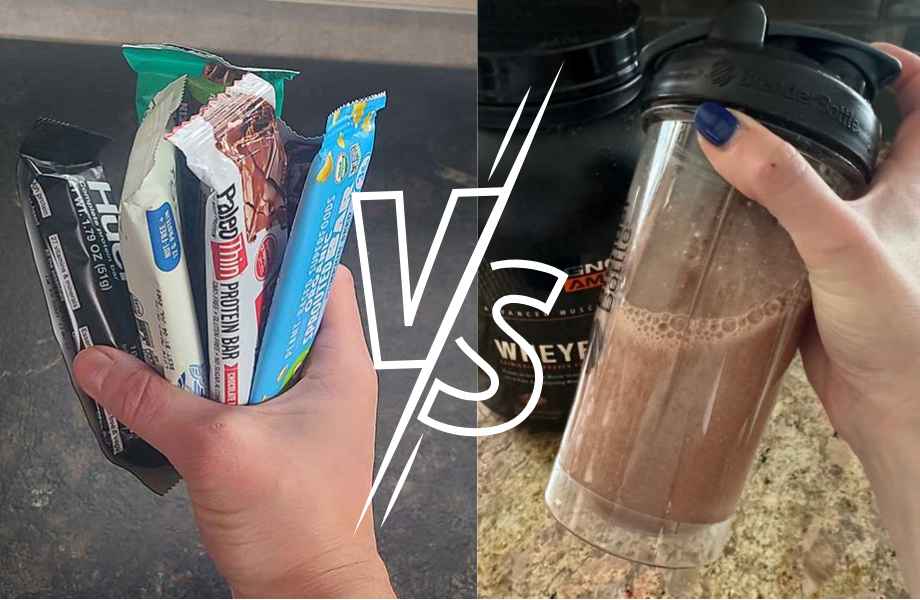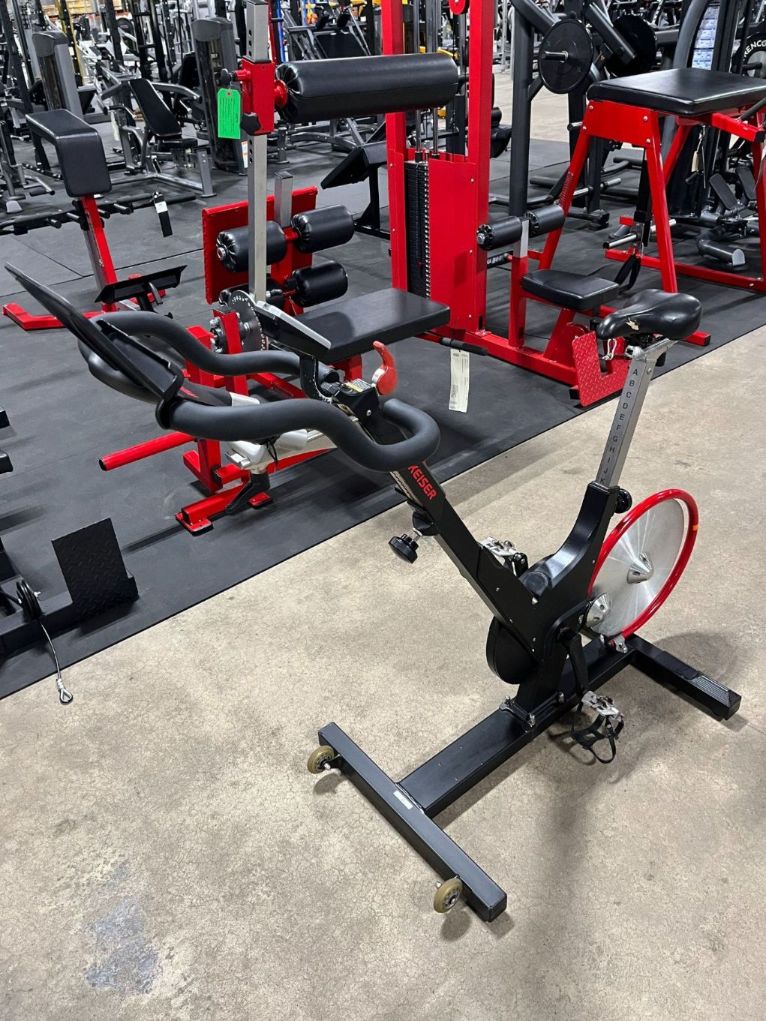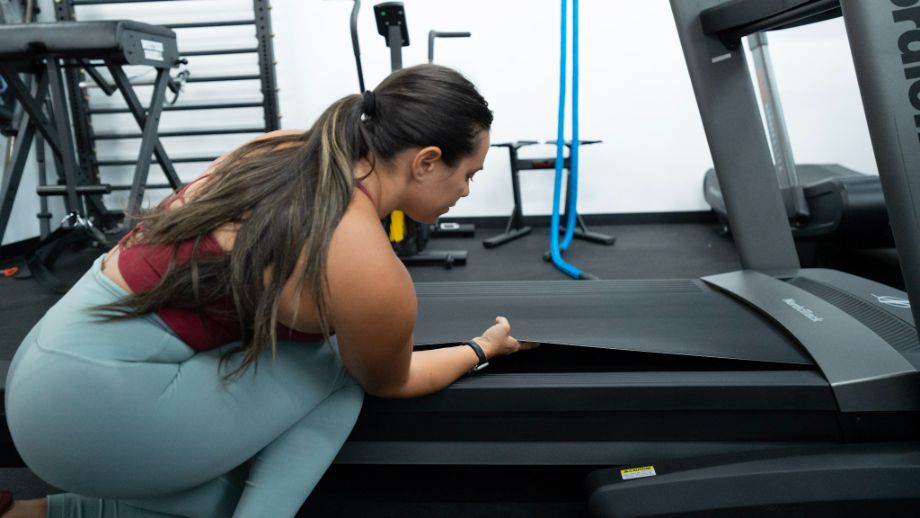Whether it’s whey, casein, or plant-based protein, what’s the benefit of choosing a protein bar vs shake? And how do you choose? Both are protein supplements meant to be a convenient way to boost the protein content in your diet, but there are definitely reasons to choose one over the other.
RELATED: How to Make Protein Shakes Without Protein Powder
These reasons involve your fitness and weight goals, of course, but you should also consider what’s in these products, if they fit into your lifestyle, and what your individual protein needs actually are. So, let’s put protein bars versus protein shakes toe to toe and see which is truly the best choice for you.
Benefits of Protein
The days of low-fat and low-carb dieting come and go, but one thing we all pretty much acknowledge is that protein is important. It’s not uncommon nowadays to see food packages emblazoned with “x grams of protein” or “good source of protein” which we automatically associate with health. But what are the benefits of protein from food, bars, and shakes?
Aids in Hunger Control
When it comes to the three macronutrients that we consume (fats, carbohydrates, and protein), protein, by far, is the most satiating macronutrient of the three. Satiety describes the feeling of fullness meaning that, when your meals and snacks contain plenty of protein, you can feel fuller while eating less.
RELATED: What Are the Benefits of Protein Before Bed?

There are several reasons for this, such as protein’s chemical structure taking a long time to break down by your stomach’s acid and protein’s ability to reduce ghrelin1, your hunger hormone.
In fact, one study published in The American Journal of Clinical Nutrition2 found that by doubling daily protein intake, without changing anything else about their diet, subjects found they ate over 400 fewer calories each day.
Building and Maintenance of Lean Muscle Mass
If you’re here at GGR, you are probably already aware of the mountains of evidence, both scientific and anecdotal, that protein is vital3 to building muscle. You also need a good resistance-training regimen, of course, but you can’t reach your full muscle growth potential if you aren’t eating enough high-quality protein.
What’s also important is what many people don’t realize: you need more protein when you’re trying to lose weight or cut. This is because when you eat in a calorie deficit, your body starts to burn its tissues for energy which is how fat loss occurs. However, this survival mechanism of the body doesn’t discriminate between fat tissue and muscle tissue while it’s burning.
RELATED: Guide to Bulking And Cutting
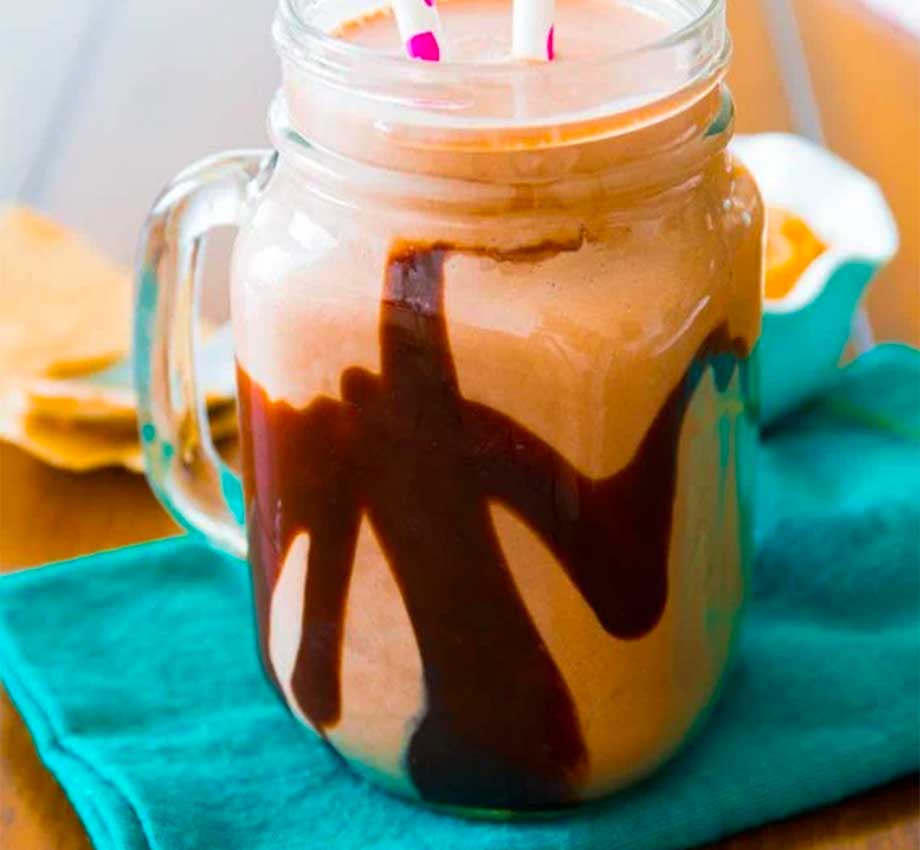
So, studies have shown that eating high amounts of protein during calorie restriction helps to protect your muscles from being broken down4 for energy by providing your metabolism with an outside source of amino acids. This way, it doesn’t seek amino acids from your muscle mass.
Assists in Healing After Injury
Whether you’re recovering from surgery or getting over a sports-related injury, studies have shown that adequate protein intake helps to speed up healing5. The reason for this is protein makes up compounds like antibodies and collagen that the body needs to fight off infection and to form matrices to close up wounds.
Helps Maintain a Healthy Metabolism
It’s not the juice cleanses or turmeric shots that are going to boost your metabolism, it’s the protein. The calories that the body burns by digesting food is called the thermic effect of food (TEF) and it turns out protein has the biggest impact on this phenomenon.
In fact, one commonly cited study has shown that 5 to 15% of the calories from fats and carbohydrates are burned via TEF while protein is more than double that rate at 20 to 35%6.
Similarities Between Protein Bars and Shakes
Now that we are aware of the awesome benefits protein can provide for us, let’s look at the ways in which protein bars and protein shakes compare, starting with how similar the two products are on the surface.
RELATED: Protein Powder Alternatives
Convenience
Whole food sources of protein like chicken and beef are great, but you can’t exactly lug them around in your gym bag all day. The beauty of protein bars and protein shakes is the convenience of being able to carry them with you, keep them at your desk at work, store them in your car—you get the picture.
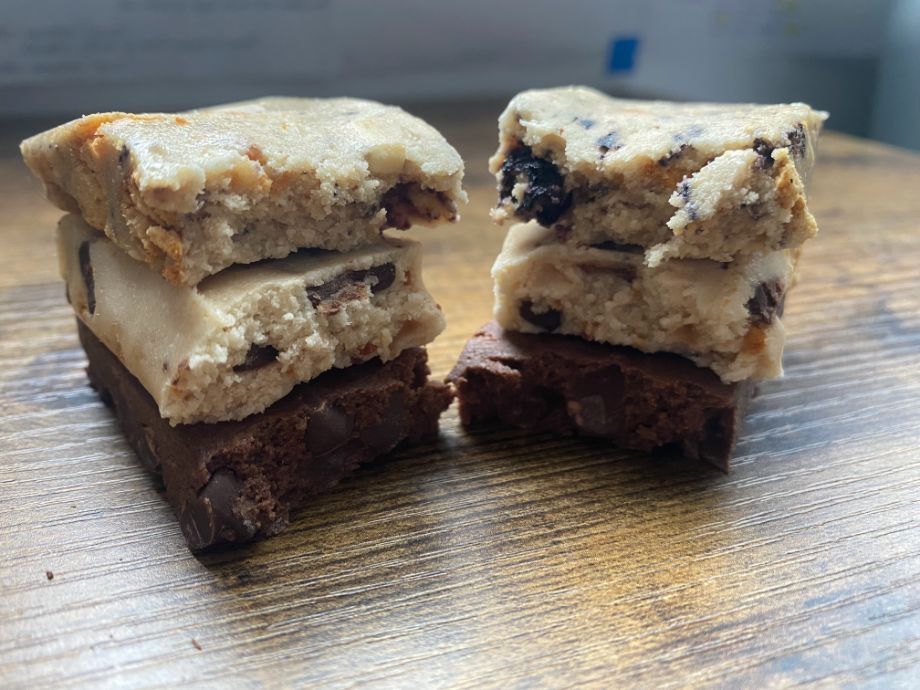
This is especially important if you have performance or fitness goals that require you to frequently consume a lot of protein. Having bottled or packaged protein right when you need it with little to zero prep or cooking needed is a convenient way to keep up with your daily protein intake.
Promotes Higher Protein Consumption
Speaking of the inconvenience of meeting high protein needs exclusively with dietary sources, we should talk about how the satiating effect of protein can backfire. This is because, if you need to eat a lot of it throughout the day, trying to get that all from food can be seriously unpleasant and even makes some athletes sick to their stomach. Not ideal for performance.
RELATED: Plant Protein vs Animal Protein
Part of this is the fact that whole food protein like meat and even plant-based protein like beans take time to chew, which gives satiety more time to set in. Another part of it is dietary protein sources often come along with other nutrients like fat, carbs, and fiber that not only increase the calorie intake, but also affect satiety.

Not only can protein bars and shakes shake up the monotony of your meal prep, but they allow you to consume a significant amount of protein in far less time than it would take to consume a high protein meal. Also, good protein supplements don’t include much of those extra nutrients, so you can keep your calorie intake low and meet protein needs without feeling nauseated.
Rewarding Post-Workout Treat
Many fitness enthusiasts will tell you that there’s nothing they look forward to more than a creamy or crunchy sweet treat after a hard workout. Though a nice, delicious meal does sound great post-workout when you’re starving, it’s also great to reward yourself with something sweet that also helps you meet your protein needs.
RELATED: How Many Protein Shakes a Day Should You Consume?
Differences Between Protein Bars and Shakes
Though both protein supplements basically are designed for the same goal, there are definitely some differences between the two that would prompt someone to choose one over the other. Here are a few to look at.
Satisfaction of Having “Eaten” Something
There’s a difference between having a protein shake and a protein snack. For some, this difference is huge. Though protein powder certainly does the trick in terms of increasing protein intake, some find they aren’t as satisfying as protein bars because they are consuming something, but don’t feel as if they are eating something.

Even if both products have the same number of calories and the same macronutrient content, one of the benefits of protein bars compared to shakes is it allows you to chew on some solid food to feel satisfied.
Additional Ingredients Needed
Keeping tubs of whey protein in your locker or gym bag is handy, but there’s not much you can do if you don’t have your shaker bottle on hand or if you can only drink your whey with milk, not water.
RELATED: Best Clear Whey Protein Drinks
Basically, in some cases, assembly is required with protein shakes and protein powder. Meanwhile, in the protein bar world, all you have to do is unwrap and enjoy.
Number of Ingredients
The ingredient list on a protein bar tends to be longer than protein powder, depending on the brand, of course. The reason for this is most protein bars have additives to keep them from melting and keep them on shelves longer.
Also, while unflavored whey protein powder is a thing, not so much so with protein bars. So, the latter almost always has natural sweeteners or artificial sweeteners. While this might not be a problem for some, others who prefer cleaner supplements might lean toward protein shakes.
Potential for Meal Replacement
A meal replacement may be an easier way for some people to maintain a low calorie intake while they lose weight. One recent study showed that adults who used meal replacements while on a weight loss journey lost 5% more weight7 than those who did traditional dieting.

RELATED: How Much Protein Should I Eat to Lose Weight?
With protein powder, there’s a huge potential for using it as a meal replacement as a well-crafted protein shake can mimic a full meal. As long as it contains protein (not difficult), carbs, and some kind of fruit and/or vegetable, you can totally make a protein shake a meal replacement.
However, it’s harder to glean this benefit from protein bars. In the study above, meal replacements contained between 200 and 400 calories, as well as substantial amounts of healthy fats, protein, and carbohydrates to mimic the content of a real meal.
While some brands of protein bars can come close to this criteria, they are far from ubiquitous. Plus, the potential to get micronutrients for your general wellness from protein bars is small, while you can add pretty much whatever you want to a protein shake for better nutritional content.
How to Choose Between Protein Bars and Shakes
So, clearly there are pros and cons between both choices of protein snack. How do you choose between the two then? Outside of just personal preference, here are some practical things to think about.
RELATED: Best Protein Bars
Budget Constraints
Depending on how much money you have to spare on supplements and how often you plan on taking them, it’s smart for budget to be a factor in your decision. In this case, protein bars tend to be more expensive than protein powder.
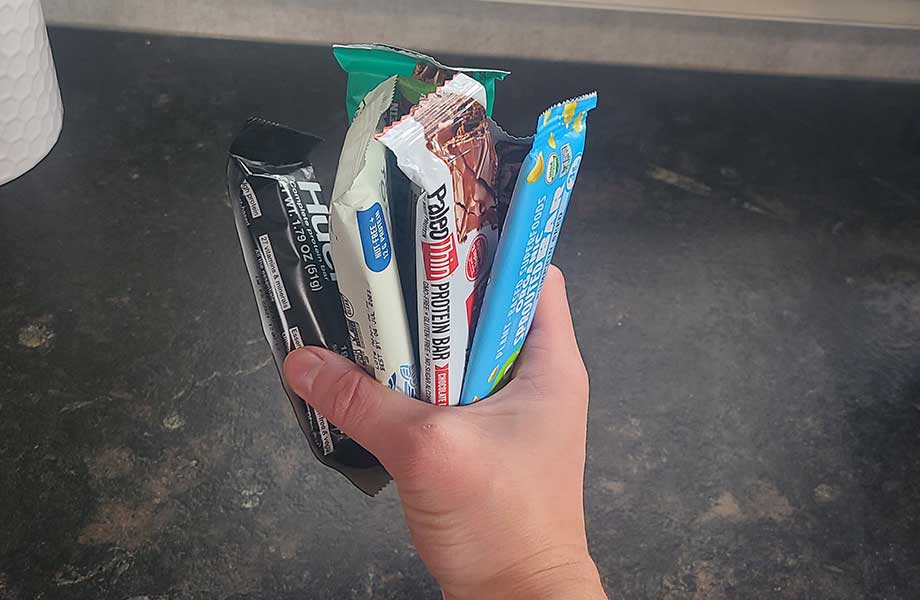
While the average price for protein powder is roughly $1 per serving, protein bars can clock in at $3 to $4 on average.
Protein Needs
If you need to maintain a very high protein intake, it may be best to turn more often to protein powder than protein bars. There’s only so many grams of protein that can be packed into a bar, but you can use as many scoops of protein as you need to meet your macronutrient needs.
Furthermore, protein bars often contain extra calories from the extra ingredients they tend to contain so, if you’re trying to maintain a low body weight, eating too many protein bars can be detrimental.
Fitness Goals
On the flip side, if you’re trying to put on weight through muscle growth, protein bars might actually be the better option for the aforementioned reasons. Eating a high calorie protein bar is also likely more enjoyable than drinking six scoops of casein and fillers from a mass gainer.
RELATED: Mass Gainer Pros and Cons
Taste Preferences
Now that the practical reasons are out of the way, let’s just talk about what your individual tastes are like. Your choice of protein bars versus protein shakes may just come down to personal preference on how you like to consume your protein.

If you like a solid food for a protein snack, protein bars are a convenient way to do that. However, there are some people who would rather not taste it at all and would likely prefer to mix an unflavored protein powder into their food or a neutral flavor into their overnight oats.
RELATED: How Much Protein Is Too Much?
Ingredient Quality
Many protein bars contain fillers, artificial sweeteners, and sugar alcohols. Though both protein bars and protein shakes can be made with whole food ingredients, cleaner protein bars may have a higher cost than protein shakes.
On the flip side, there are plenty of protein bars out there that are essentially a glorified candy bar with tons of added sugar and some whey concentrates sprinkled in. So, this comes down to checking your ingredient list properly to see if it fits your wellness principles.
How Much Protein Should You Consume Each Day?
One good place to start in deciding if you should go with protein bars or shakes is to first find out how much protein you need. To be frank, the average person who eats a balanced diet can meet their nutritional needs without protein supplements.

Whole foods, however, just don’t have the desired protein content for some people who have a lot of lean muscle mass, train at a high volume, or have other special characteristics that make protein supplements nearly necessary. Given this range, let’s go over the protein needs of different populations.
The Protein Requirements for the General Population
It is recommended that the general population eat 0.8 grams of protein per kilogram of body weight8 according to the Dietary Guidelines for Americans.
So, if you weigh 140 pounds, you would need 51 grams of protein per day. For the fitness enthusiasts reading, that’s gotta sound like a pretty low amount of protein. You should be aware, however, that this number is meant for sedentary individuals and is simply a guideline for the minimum protein intake necessary to prevent a protein deficiency.
For an active adult building muscle, however, studies suggest that 1.3 grams of protein per kilogram of body weight9 is the best recommendation. This comes out to about 83 grams of protein for a 140-pound adult.
The Protein Requirements for Athletes
Compared to the general population, athletes need much more protein and carbs.
The body requires more amino acids to repair damaged muscles during the intense, frequent exercise athletes have to endure. When this adaptation occurs, the body becomes less efficient at building muscle when it does not receive enough protein to recover, which results in a decline in muscle mass, athletic performance, and power10.
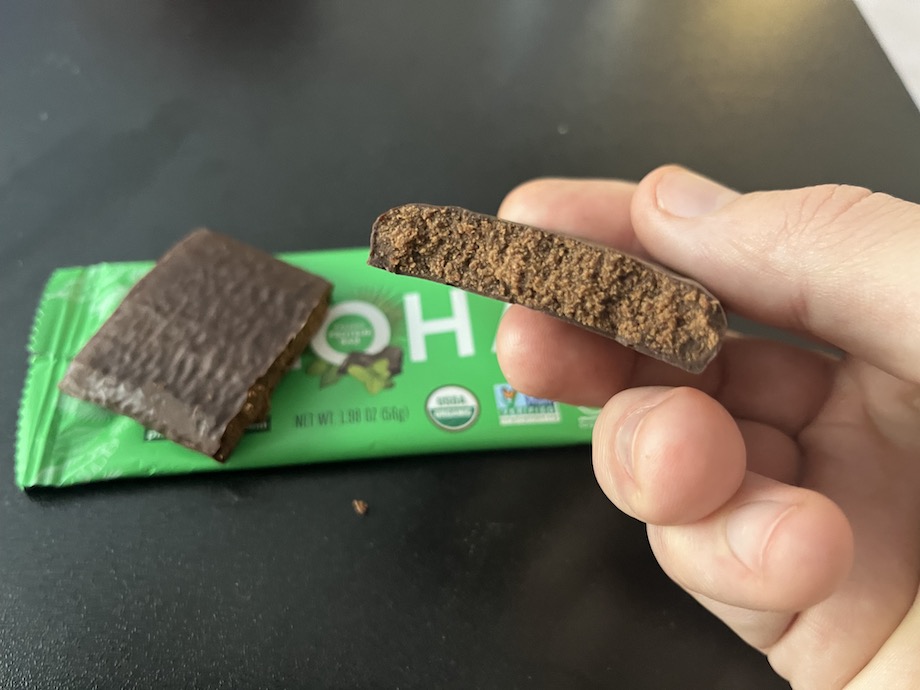
Accordingly, athletes should consume 1.6 to 1.8 grams of protein per kilogram of body weight, according to The American College of Sports Medicine11. Although the study does mention most athletes will need much more than this if they already have a lot of lean mass and want to gain more muscle, and I absolutely agree with that as a sports dietitian.
According to the International Journal of Sports Nutrition and Exercise Metabolism12, eating 1 gram of protein per pound of body weight isn’t just a gym rumor. It’s supported by solid science. Most athletes can use this as a starting point, but if you want more specific advice, you should always speak to a dietitian.
Protein Requirements of Older Adults
For very good reasons, there are different protein requirements by age.
When we reach the age of 30, we begin to lose muscle mass at a rapid rate just as a natural part of aging. The rate of muscle tissue loss after age 30 increases to 3 to 8%13 every decade after age 60…and there’s not a lot we can do about it.

In addition, as we age, we have a higher risk of falls and chronic diseases, and limited mobility if our muscle mass gets too low. According to studies, to alleviate these effects, older adults should lift weights at least twice a week in addition to consuming 1 to 1.3 grams of protein per kilogram of body weight per day14.
Side-By-Side Comparison
So you can see the differences and similarities of protein bars and shakes all in one place, we compared Legion Athletics’ Protein Bar and Legion’s Whey Protein.
RELATED: Legion Whey Protein Review
As you can see, like we talked about, protein bars tend to be more expensive and have way more calories. They also often have multiple types of protein and sugar alcohols. However, this particular protein bar also has fun ingredients like fruit pieces and healthy fats like almond butter, which don’t always have a place in protein shakes and powder.
| Protein Bar | Protein Shake | |
| Calories | 250 | 100 |
| Protein | 20 g | 22-24 g |
| Carbs | 28 g | 2-6 g |
| Fats | 11 g | 1-2 g |
| Added Sugar | 3 g | 0 g |
| Sweeteners | Erythritol, Monk Fruit Extract, Stevia | Stevia Leaf Extract |
| Type Of Protein | Whey Protein Isolate, Whey Protein Concentrate, Milk Protein Isolate | Whey Protein Isolate |
| Price Per Serving | $3.00 | $1.99 |
Protein Bar vs Shake: Final Thoughts
The benefits of protein shakes and protein bars are pretty similar and both are, for the most part, intended to reach the same goal. However, which one you choose to go with depends heavily on your specific weight and fitness goals. Those going for weight loss may find that protein shakes make their life easier, while people trying to put on mass, or those of an advanced age, could benefit from both.
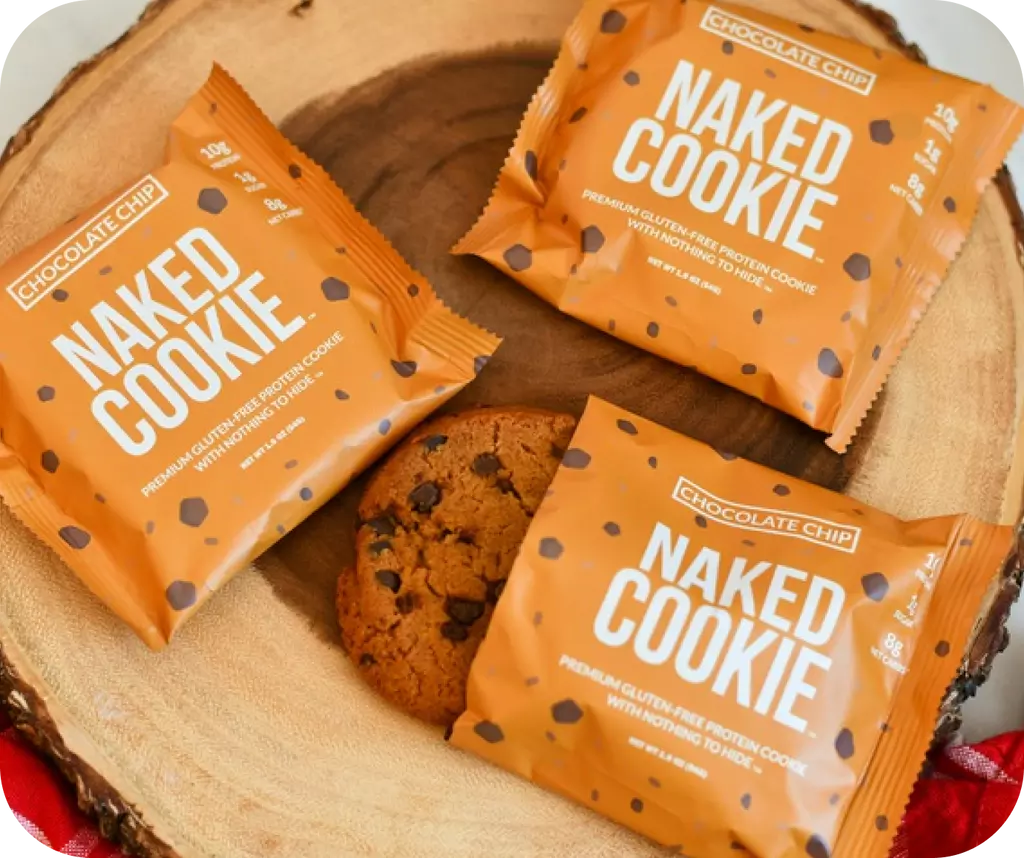
RELATED: Protein Drinks for Seniors
No matter which one you choose, just be sure to also take care of your nutritional needs. Remember, these are supplements, not health foods. So do your best to first get your protein needs from balanced meals that contain high-quality protein from whole food sources. Protein supplements simply exist to fill the gaps.
Protein Bar vs Shake: FAQs
Is it better to drink protein shakes or eat protein bars?
This is mostly up to personal preference. However, for the most part the decision between the two should be made based on your fitness goals, schedule, and lifestyle.
Can a protein bar replace a protein shake?
Most protein bars and protein shakes can be interchangeable depending on what it is you are trying to get out of these supplements.
Do protein bars actually build muscle?
Protein bars can go a long way in helping to build muscle. Their carb and protein content can give the muscles what they need to grow along with contributing to the needed calorie surplus.
Is it OK to eat 2 protein bars a day?
It’s OK to eat two protein bars a day, but it’s likely not optimal to consume more than this as it can displace the nutrition you need from whole foods in your diet.
References
- Blom WA, Lluch A, Stafleu A, et al. Effect of a high-protein breakfast on the postprandial ghrelin response. Am J Clin Nutr. 2006;83(2):211-220. doi:10.1093/ajcn/83.2.211
- Weigle DS, Breen PA, Matthys CC, et al. A high-protein diet induces sustained reductions in appetite, ad libitum caloric intake, and body weight despite compensatory changes in diurnal plasma leptin and ghrelin concentrations. Am J Clin Nutr. 2005;82(1):41-48. doi:10.1093/ajcn.82.1.41
- Stokes T, Hector AJ, Morton RW, McGlory C, Phillips SM. Recent Perspectives Regarding the Role of Dietary Protein for the Promotion of Muscle Hypertrophy with Resistance Exercise Training. Nutrients. 2018;10(2):180. Published 2018 Feb 7. doi:10.3390/nu10020180
- Helms ER, Zinn C, Rowlands DS, Brown SR. A systematic review of dietary protein during caloric restriction in resistance trained lean athletes: a case for higher intakes. Int J Sport Nutr Exerc Metab. 2014;24(2):127-138. doi:10.1123/ijsnem.2013-0054
- Frankenfield D. Energy expenditure and protein requirements after traumatic injury. Nutr Clin Pract. 2006;21(5):430-437. doi:10.1177/0115426506021005430
- Halton TL, Hu FB. The effects of high protein diets on thermogenesis, satiety and weight loss: a critical review. J Am Coll Nutr. 2004;23(5):373-385. doi:10.1080/07315724.2004.10719381
- Sooriyaarachchi P, Jayawardena R, Pavey T, King NA. Meal replacement as a weight loss strategy for night shift workers with obesity: a protocol for a randomized controlled trial. Trials. 2022;23(1):860. Published 2022 Oct 8. doi:10.1186/s13063-022-06784-x
- Snetselaar LG, de Jesus JM, DeSilva DM, Stoody EE. Dietary Guidelines for Americans, 2020-2025: Understanding the Scientific Process, Guidelines, and Key Recommendations. Nutr Today. 2021;56(6):287-295. doi:10.1097/NT.0000000000000512
- Carbone JW, Pasiakos SM. Dietary Protein and Muscle Mass: Translating Science to Application and Health Benefit. Nutrients. 2019;11(5):1136. Published 2019 May 22. doi:10.3390/nu11051136
- Tipton KD, Wolfe RR. Protein and amino acids for athletes. J Sports Sci. 2004;22(1):65-79. doi:10.1080/0264041031000140554
- Stokes T, Hector AJ, Morton RW, McGlory C, Phillips SM. Recent Perspectives Regarding the Role of Dietary Protein for the Promotion of Muscle Hypertrophy with Resistance Exercise Training. Nutrients. 2018;10(2):180. Published 2018 Feb 7. doi:10.3390/nu10020180
- Helms ER, Zinn C, Rowlands DS, Brown SR. A systematic review of dietary protein during caloric restriction in resistance trained lean athletes: a case for higher intakes. Int J Sport Nutr Exerc Metab. 2014;24(2):127-138. doi:10.1123/ijsnem.2013-0054
- Volpi E, Nazemi R, Fujita S. Muscle tissue changes with aging. Curr Opin Clin Nutr Metab Care. 2004;7(4):405-410. doi:10.1097/01.mco.0000134362.76653.b2
- Li R, Xia J, Zhang XI, et al. Associations of Muscle Mass and Strength with All-Cause Mortality among US Older Adults. Med Sci Sports Exerc. 2018;50(3):458-467. doi:10.1249/MSS.0000000000001448


